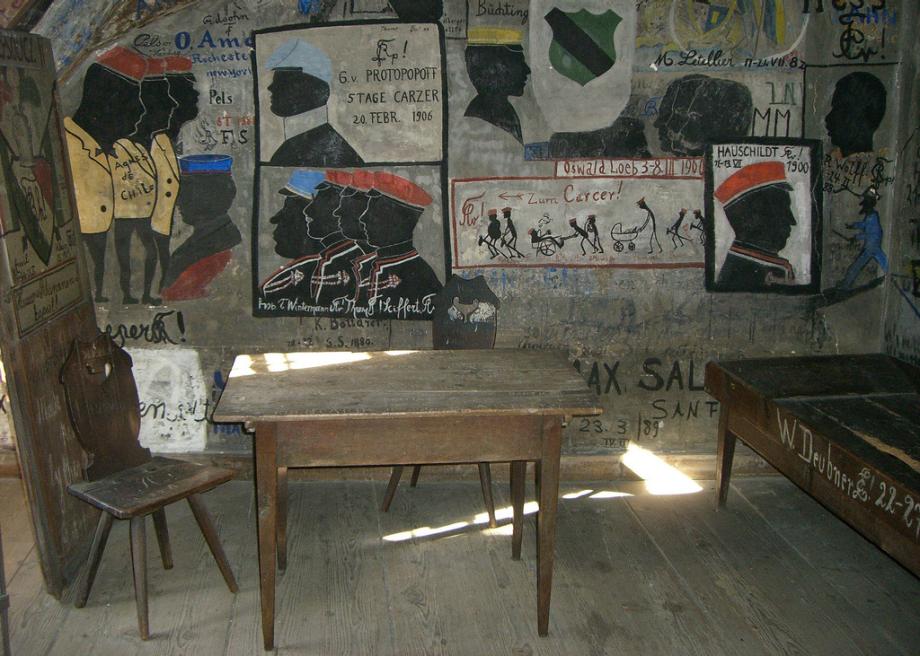And while British academics like to grumble about the consumerisation of higher education, as students start demanding more value for money in exchange for their fees, I'm not persuaded this is a bad thing. We should be in a position where students expect a lot from universities and universities expect a lot from students. My old friend Corey Ross, back in his days working on East Germany, used to say there was something late-Soviet about British higher education: students pretend to work, and staff pretend to teach them. We are mercifully leaving that behind.
Still, I am reminded that another age achieved this in a different way, by this delightful article on the former student jail at Heidelberg University. Be honest, academic readers: doesn't a sliver of you wish your university had one?
But what really cheers me is the images of the jail itself, suggesting that the German academy is, or was, more anarchic than it is given credit for; or, perhaps, that the intellectual and political stimulation provided by jailing students is not to be underestimated.

No comments:
Post a Comment